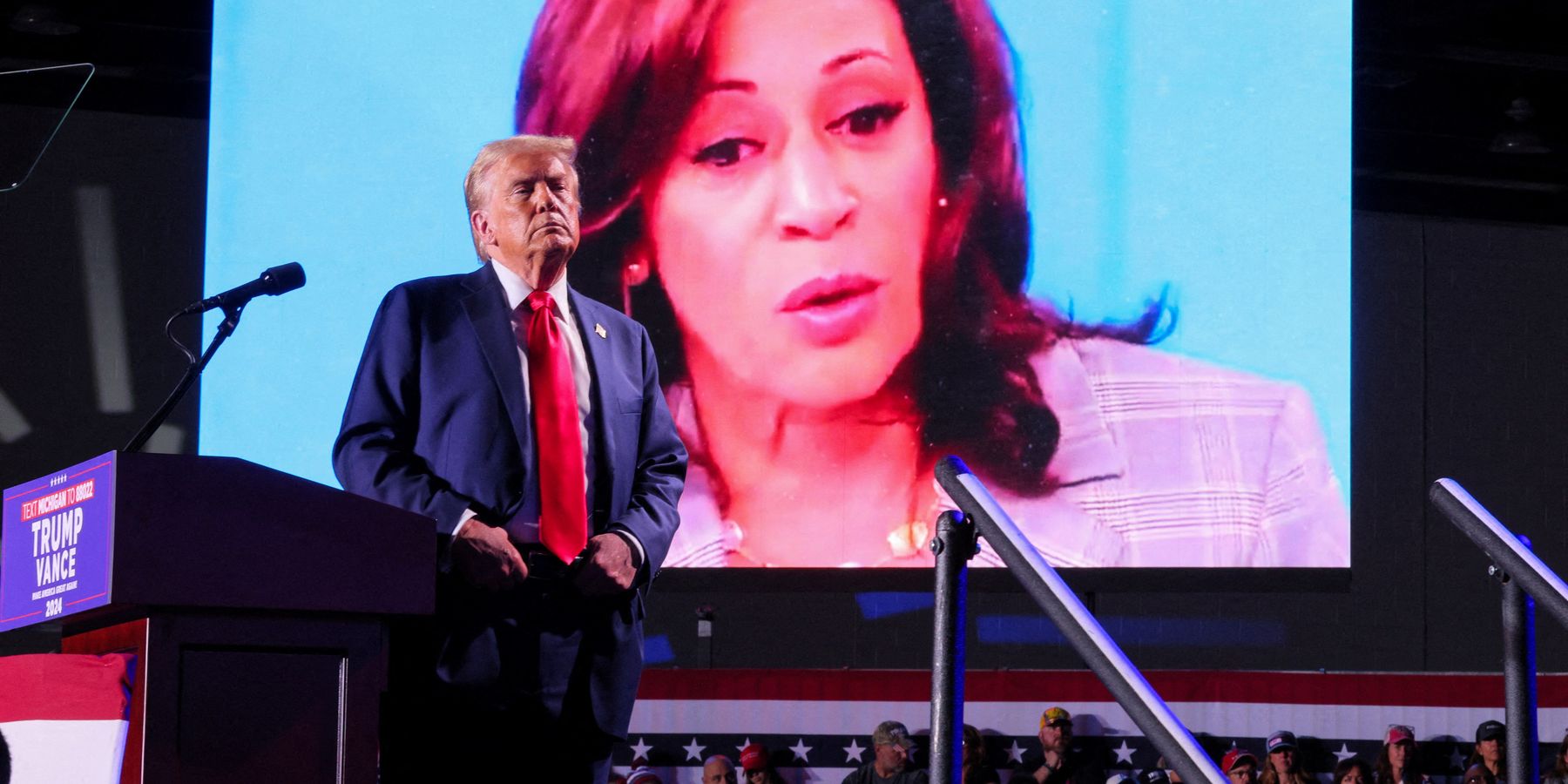We’ve been hearing a lot lately that foreign policy doesn’t decide elections. This year’s one is putting that claim to the test.
The Donald Trump campaign is certainly betting that it will. Earlier this week, Trump running mate J. D. Vance used his appearance on comedian Tim Dillon’s podcast to take a swing at the Kamala Harris campaign’s stance on the Gaza war, deploying a number of talking points that wouldn’t have sounded out of place coming from a progressive commentator.
“Even though they say they want to minimize Palestinian civilian casualties, they pursued the pathway that maximizes those casualties,” Vance said. “They say that they're pro-Israel. They've pursued the pathway that has prolonged the war as long as possible, which is bad for Israel.”
This comes on top of a number of similar moves by the Trump campaign to seemingly align itself with antiwar sentiment. In an Al-Arabiya interview, Trump said regarding the escalating war in the Middle East that “I wanna see it all stop, I wanna see the Middle East get back to peace,” suggested he might end the war, and heaped praise upon the Arab people, adding “it's a shame what's happening over there.”
Last weekend, the former president unveiled the endorsement of Muslim leaders in Michigan, a key, heavily Arab- and Muslim-populated battleground state that has been roiled the past year by anger over Gaza, several of them telling rally-goers they were backing Trump because he was promising peace.
In his Madison Square Garden rally speech and several social media posts, Trump has talked about ensuring “the Middle East return to real peace, a lasting peace,” that he “will stop the chaos in the Middle East” and “stop the suffering and destruction in Lebanon,” and attacked Harris for campaigning with former Rep. Liz Cheney, “who, like her father, the man that pushed Bush to ridiculously go to war in the Middle East, also wants to go to war with every Muslim Country known to mankind.”
This is a sharp turn away from Trump’s posturing during most of this campaign. The former president has repeatedly used “Palestinian” as a slur, and his recent campaign rally featured offensive anti-Palestinian rhetoric. He has publicly — as well as privately, according to a recent report — backed the war and said he would encourage Israeli Prime Minister Benjamin Netanyahu to “finish the job.”
He and his team are more or less openly planning to harshly repress anti-war, pro-Palestinian activists should he win. As president, he not only instituted the Muslim ban, gave Israel practically everything it wanted, and nearly started war with Iran, but was also responsible for many thousands of Arab and Muslim deaths via his support for the Yemen war, his war on ISIS, and the sharp increase in drone attacks during his administration.
So then what exactly is going on here?
A clue can be found in a New York Times report from last week about the campaigns’ respective closing strategies. According to the report, the Trump campaign’s research found that undecided voters in battleground states were six times as likely to be motivated by their views on Israel’s war. Even without this, it has long been clear that voters in battleground states disaffected with Democratic facilitation of Israel’s war were a potentially pivotal constituency Trump could peel off: they have openly talked about withholding their vote or even voting for Trump as a way of punishing the Democrats or taking a chance on a candidate they see as a wild card.
(To be fair, Trump has talked out of both sides of his mouth on the issue, at times publicly saying Israel should end the war, and reportedly telling Netanyahu this past July he wants the war finished by the time he’s in office).
Harris has left herself wide open to this strategy, however cynical and opportunistic it is, by refusing to break from Biden on Israel policy. In fact, she has also left herself vulnerable to being outflanked on the left on foreign policy more generally, having adopted a distinctly hawkish position that represents a sharp turn away from Biden’s successful 2020 campaign, at a time when the voting public is more war-weary, fearful of escalation, and eager to focus on homegrown problems than it has arguably been in decades.
As that same Times report and others show, Harris is betting that she can overcome this by trading a significant segment of the diverse winning coalition Biden had stitched together in 2020 for affluent disaffected Republicans who voted for Nikki Haley, whose GOP primary challenge to Trump was in large part rooted in advocacy for a more muscular, interventionist foreign policy than the former president..
To that end, her campaign is now almost going out of its way to offend the anti-war constituencies it has lost to the war on Gaza, leaning into the hawkish stance on Israel’s wars that has threatened its election chances, as Trump does the opposite, leaning into anti-war and almost progressive-sounding rhetoric on the escalating Middle East conflict.
Both campaigns, in other words, are using foreign policy to make major alterations to the voter coalitions that brought their parties to power in previous elections. But it’s Harris and the Democrats who are making the far bigger gamble. The success or failure of the strategy won’t just potentially decide the election — it may well shift the course of U.S. foreign policy.
















